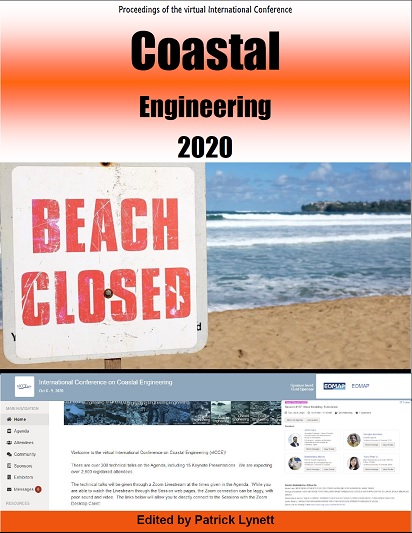Abstract
Coastal processes are natural processes that operate along coastal zones, resulting in morphological changes in erosion and deposition. The western coast of India is affected by extreme monsoonal wave activity, which can lead to the loss of beaches and the vulnerability of the dunes. As a result, understanding actual near-shore physics and long-shore sediment transport becomes a prerequisite for the development of an effective coastal zone management strategy. The aim of this study is to quantify and investigate longshore sediment flux as a result of wave action based on sediment trap experiments (Kraus 1987). The Kraus (1987) method, along with wave hydrodynamics and current measurements, is performed using acoustic instruments across the surf zone.References
Nicholas C. Kraus., (1987). Application of Portable Traps for Obtaining Point Measurements of Sediment Transport Rates in the Surf Zone. Journal of Coastal Research, 3(2), 139-152.
Authors retain copyright and grant the Proceedings right of first publication with the work simultaneously licensed under a Creative Commons Attribution License that allows others to share the work with an acknowledgement of the work's authorship and initial publication in this Proceedings.

